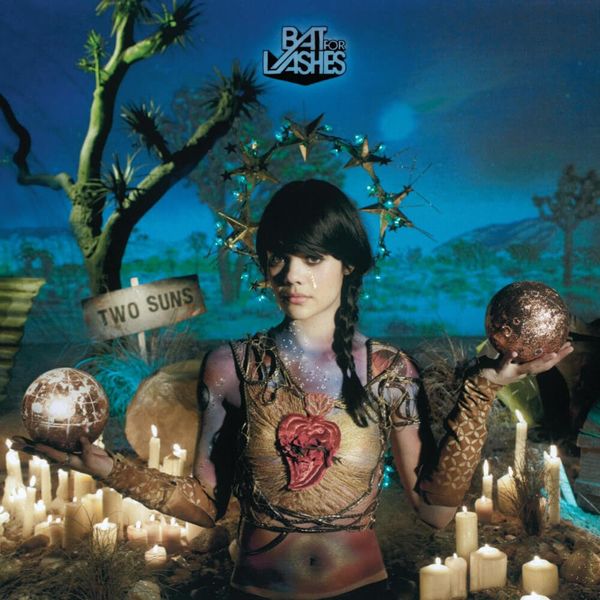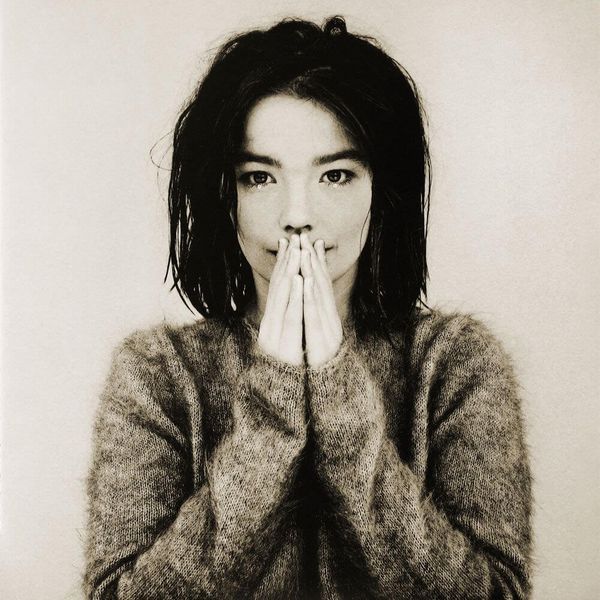André
Very few albums evoke the sense of mystery and wonder like Kate Bush’s Hounds of Love. The music is beautifully dramatic, like a howling wind moving ferociously through a magical landscape. Despite its quirks, the record retains a level of accessibility that keeps it well within the territory of pop. There’s a lofty concept behind the albums structure — the weight and meaning of its two sides — but Bush rarely lets the music slip away from pop arrangements. There’s a direct purpose behind every move, even if the execution isn’t always flawless.
Indeed, whilst it’s clear to see what Bush was envisaging on “Waking the Witch”, the implementation is certainly clumsy, somewhat lumbering and heavy-handed, and it ends up feeling overblown as a result. The pirate frolic of “Jig of Life” is as jarring as it is aggravating, though undoubtedly still a lot of fun. These imperfections are perhaps merely part of the charm, such is the aura of abnormality. The mystical quality that runs throughout Hounds of Love not only arouses mystery and wonder, it covers a few minor blemishes on the way too.
The enthusiasm and motivation to experiment is not just impressive, it’s thoroughly engaging. Bush doesn’t have a conventionally strong pop voice, but it is remarkably expressive, and she uses it in weird and wonderful ways. All the sounds on Hounds of Love exude extraordinary amounts of character. Timbre is a key part of why it remains a captivating listen 30 years later: the tribal percussion that leads the way on “Running Up That Hill”; the delicate picking of the bouzouki that decorates “And Dream of Sheep”; the deep tones of the double bass that beautifully embellishes “Watching You Without Me; the theremin-like whistle that plays on “Mother Stands for Comfort”.
The stunning ornamentation is a huge part of the record’s success, and its influence and legacy truly cannot be overstated. Multiple musical innovators such as Björk and St. Vincent have cited Bush as a major influence, and you can hear so much of Hounds of Love in the music of Florence and The Machine, Bat For Lashes, and countless more. Furthermore, the steady stride of “Watching You Without Me” shares an identical ambience to that of temple music from The Legend of Zelda. In general, the second side shares an astonishing amount of resemblance to video game music, which is just further testament to the innovation on show.
Whilst Hounds of Love is not without its defects, it’s held high on the pedestal of art-pop for good reason. That Bush could create something so deliriously weird and wild yet also break through to the mainstream world is great proof of her powers. An enchanting experience.
8 out of 10
Fred
Hounds of Love travels to the outer reaches of pop, and it often feels like it does so simply out of curiosity. Bush’s first four albums were a whirlwind, released in quick succession and with near-furious creative energy. In Hounds there’s a clear sense of someone stepping back, breathing in, and trying something extraordinary.
Finding sanctuary in her own pristine home studio, Bush finally had complete freedom. ‘You cut all the crap, don’t have all these people around and don’t have expensive studio time mounting up. A clean way of working.’ Three years in the pop wilderness wasn’t enough to make the album a comeback per se, but it did guarantee a freshness. This was to be a record in her space, on her terms.
The album’s two sides are essential to its success in this respect. Side one establishes a lush, experimental blend of technology and old-world instrumentation, all in killer art-pop package. That’s where the hits are, strange bait with killer hooks. Side two rides that sonic palette to strange, mystic extremes. The innocence of that push — the cleanness — is part of what makes the whole journey so seductive. It’s playful, delirious even. Even when it doesn’t work it works. The sense of sonic adventure overrides any incredulousness at the places mapped. The juxtaposition reminds me a little of David Bowie’s Low in that sense; a punchy cluster of songs followed by a foray through the soundscapes. Hounds is messier than Low, but that feels appropriate. It has more threads to pull.
You listen to ‘80s albums by the likes of Michael Jackson or even Public Image Ltd and the sound is so heavy-handed, so thick. Hounds is of that time, but its experimentation keeps it unmoored. Every listen drifts somewhere new. When Bush wrote of her hopes that fans would ‘enjoy listening to it in different ways again and again’, I doubt even she could imagine how true that would prove to be of its legacy. Every time a Björk or a St. Vincent dares to reinvent herself, we hear the hounds again. That flutter of a true leap into the unknown never truly goes away.
9 out of 10
Andrew
It’s hard to discern, as a modern listener, whether pop music was hitting its stride, running wild with musical experimentation, or simply striving to be more interesting, but Hounds of Love delivers a striking sound which is full to the brim with character.
The first half delivers on the character, with the likes of “The Big Sky” and “Cloudbusting” making for catchy, memorable pop tracks, drawing listeners in with their accessible sound. Meanwhile, the second half piques interest instead with the drama of “Waking The Witch” or “Hello Earth”, and while the former is a tad rough around the edges and shows its age, both tracks pull me right in and keep me hooked.
Instrumentation throughout the tracklist is pretty vast. Between the generous dollops of sampling that saturates “Waking The Witch”, and the traditional Irish instruments that fill “Jig Of Life”, Hounds of Love is a showcase for instrumentation from across the world as well as electronic sounds that, while showing their age, still sound wonderful. Bush’s vocals can easily go unmentioned given that it’s not a great surprise that they sound excellent regardless of whether she’s singing playful pop or dramatic, echoing ballads, but the title track’s vocal line is particularly exceptional.
The contrast from beginning to end makes Hounds of Love an unrelenting curiosity, and with a considerable amount of detail woven into the tracklist you can easily find yourself several listens deep and finding new points of note. Listening now, Hounds of Love certainly sounds like an album of its era, but its playful, inquisitive nature enables it to sit head and shoulders above most pop music of any era and perch among the greats.
8 out of 10



